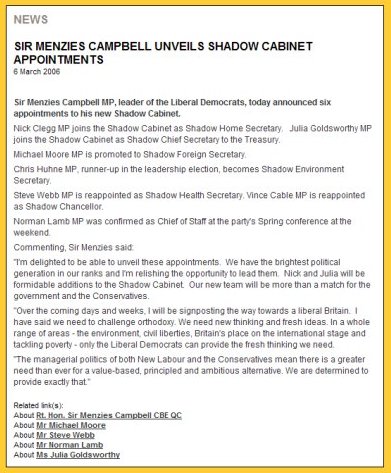J’accuse: the Labour Party, with the smoking bill, in the House of Commons.
The Salisbury Convention, initiated by Lord Salisbury, is the arrangement that dictates that the House of Lords will not vote down or wreck with amendments measures that appeared in the Government’s manifesto. It dates back to a time when the big Tory majority in the House of Lords – thanks to the hereditary peers – meant they could, theoretically, block the Government’s programme.
The convention has become increasingly disregarded, for good reason. While Labour insist the Lords should stick to it, they have themselves failed to follow through on their promises to make the second chamber more democratic. The Tories and LibDems in the upper house therefore argue that the chamber as it exists now is how the Labour party chose to leave it, with the in-built Tory majority of the past long gone. They also argue that, thanks to the continued use of first-past-the-post in general elections, the party make-up of the House of Lords actually better reflects the views of the public at large than the undeserved majority achieved by Labour in the House of Commons.
In today’s theguardian, Baroness Scotland is quote as insisting the Lords should leave the ID cards bill alone:
“We went to the electorate and said, we want identity cards and it will be a compulsory scheme in the long term.”
Lord Phillips, for the LibDems, points out the exact wording of the Labour manifesto:
We will introduce ID cards, including biometric data like fingerprints, backed up by a national register and rolling out initially on a voluntary basis as people renew their passports.
His position is that this should mean that people renewing their passports could opt to join the voluntary scheme, not be forced into it, as the Government wishes. Semantics aside, the wording of Labour’s manifesto is redundant, and it is their own doing, because on page 66, it said:
We will legislate to ensure that all enclosed public places and workplaces other than licensed premises will be smoke-free. The legislation will ensure that all restaurants will be smoke-free; all pubs and bars preparing and serving food will be smoke-free; and other pubs and bars will be free to choose whether to allow smoking or to be smoke-free. In membership clubs the members will be free to choose whether to allow smoking or to be smoke-free. However, whatever the general status, to protect employees, smoking in the bar area will be prohibited everywhere.
Having made this promise, in the manifesto on which all Labour MPs were elected, the Government then allowed their MPs a free vote and the exemptions for bars and membership clubs were removed.
Why is it OK for Labour MPs to ignore one section of the manifesto, while peers (who were not elected on it) are expected to fall in line with another?



Recent comments